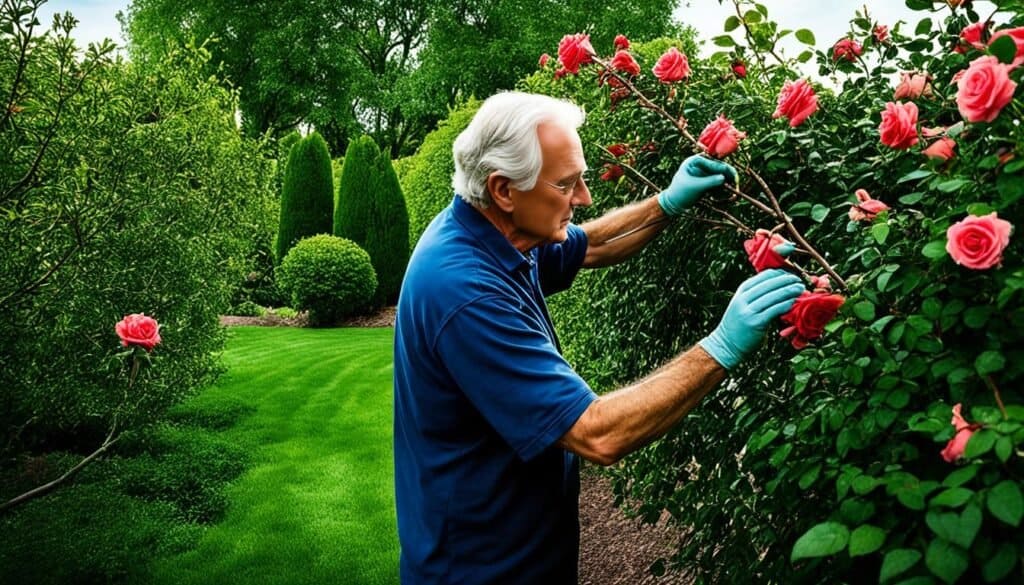Welcome to our journey into gentle restoration and how it heals broken bonds. Have you thought about how being kind, patient, and gentle can fix strained relationships? We’ll discover if the path to repair lies in following wisdom from ancient texts. Let’s explore the amazing effects of gentle actions on our connections.
Our world moves quickly, and sometimes we lose touch. Arguments and misunderstandings can drive us apart. These gaps can seem too wide to bridge. What if we told you there’s a kind way to mend these rifts? Could acts of gentleness, patience, and kindness be the secret to peace?
We’ll look at what scriptures say about being calm and understanding with others. Through exploring these texts, we aim to find real solutions for rebuilding connections. By doing so, we hope to spread unity and caring.
Are you ready to start this journey with us? We’ll see how valuable gentle acts are in fixing relationships. With ancient wisdom to guide us, we’re ready to spread love and understanding.
Key Takeaways:
- Gentle restoration holds the power to mend strained relationships and promote harmony.
- Approaching others with kindness, patience, and meekness can transform and heal broken connections.
- Scriptural guidance provides valuable insights on how to restore relationships with empathy and understanding.
- Restoration requires humility, forgiveness, and a spirit of meekness.
- The promise of a great reward motivates us to practice gentleness and meekness in restoring others.
Restoring Others with Meekness
Helping others gently through meekness is key to true restoration work. It means we show care, try to understand, and share their feelings.
In Galatians 6:1, we’re taught how to gently help others. This verse reminds us to think of our own struggles too. It advises us to be careful when helping others to not fall into the same mistakes.
Gentle restoration is free of judgment or showing we’re better. It’s about lending a supportive hand. It’s realizing we are all in this together, in need of help now and then.
“Brothers and sisters, if someone is caught in a sin, you who live by the Spirit should restore that person gently. But watch yourselves, or you also may be tempted.” – Galatians 6:1 (NIV)
To restore with meekness, we must want the best for them sincerely. We listen openly, guide softly, and provide a safe place to heal.
With a humble attitude, we build a trusting space. A place where being open and making real change feels safe. This is where genuine restoration happens.
Practicing Restorative Meekness
There are several important things to remember when restoring others with meekness:
- Self-Awareness: Understanding your flaws helps you approach others with heart and mind open.
- Active Listening: Let their voice be heard. Listening to their worries and pains is crucial.
- Empathy and Compassion: Trying to see from their point of view helps you sincerely care for them.
- Patience and Understanding: Restoring and healing takes time. Being patient and supportive is vital.
Working on gentle restoration is a path of constant growth. It helps in fixing people, connections, and the society. It’s about living a life of kindness and meekness.
Tips for Restoring Others with Meekness
| Tip | Description |
|---|---|
| Show Empathy | Put yourself in their shoes and try to understand their feelings and experiences. |
| Be Patient | Allow time for healing and growth, recognizing that everyone’s journey is different. |
| Offer Support | Provide practical assistance, advice, and encouragement without judgment. |
| Communicate Clearly | Use gentle and respectful language when discussing difficult topics or addressing concerns. |
| Show Forgiveness | Forgive and let go of past hurts, creating space for restoration and reconciliation. |
Jesus’ Example of Gentle Correction
Jesus shows us the best way to gently correct others. In John 8:10-11, there’s a moving story about this. It highlights how Jesus dealt with sinners.
Jesus asked only the woman where her accusers had gone. When she said no one had condemned her, He replied, ‘Neither do I; go, and don’t sin again.'”
This story shows Jesus’ deep compassion and gentle guidance. Instead of judging the woman caught in adultery, He offered understanding. He also stressed the need to change and leave sin behind.
Jesus’ method teaches us important lessons. When we need to correct someone, compassion is key. Judgement isn’t the way; care and hope for change are.
Approaching Others with Gentleness and Compassion
Gentle correction works best when it comes from real concern and love. Treating people gently opens the doors for healing and growth.
First, we should strive to understand the struggles of those we want to help. Showing empathy connects us deeply and builds a common understanding. Listening and speaking without judgment helps to develop trust.
Our aim should be to lead people toward a better path without condemning. Just like Jesus did, we should offer a chance for a fresh start. Focusing on potential growth and change helps people see their wrongs and fix them.
The Power of Compassionate Correction
Kind, compassionate correction can change lives and mend connections. It sets the stage for real and positive changes.
Following Jesus’ approach makes us healers and restorers. Our words and deeds can ease the burden of guilt and light a way to a better life.

Meekness in Handling Opposition
As we walk the path of gentle restoration, we meet different kinds of resistance. It’s vital to face these hurdles with meekness and gentleness. This approach is clear in 2 Timothy 2:24-25. Developing meekness helps us better engage with those against themselves.
Some think meekness means being weak. But it’s a sign of real strength. It lets us stay calm under fire, even when people are mean or attack us. Showing meekness means we can control ourselves, show humility, and respect others.
“The Lord’s servant must not be quarrelsome but must be kind to everyone, able to teach, not resentful. Opponents must be gently instructed, in the hope that God will grant them repentance leading them to a knowledge of the truth.” – 2 Timothy 2:24-25
Through meekness, we build a space for honest talk and understanding. It lets us share our concerns or disagreements without being mean. Meekness starts paths to peace and real change.
Being meek also means being patient. It’s easy to get mad when people push back. But patience lets us stay cool. It gives us a chance to really listen and see things from their side. This work of patience helps to form friendships and work together better.
Using meekness in tough situations shows we care more about helping others than being right. It helps to lower defenses, easing conflicts. Meekness aims to show love, win back trust, and encourage real unity.
Choosing meekness in how we handle things can change hearts. It makes people think about what they believe or do. Meekness shines Christ’s light through us and can lead to remarkable healing.
Let us choose meekness to face conflicts, using it to mend, understand, and bring back together relationships struck by turmoil.
| Benefits of Meekness in Handling Opposition | Scriptural Support |
|---|---|
| Creates an environment of open dialogue and understanding. | 2 Timothy 2:24-25 |
| Fosters trust and cooperation through patience and empathy. | James 1:19-20 |
| Softens hearts and disarms aggression. | Proverbs 15:1 |
| Inspires reflection and encourages personal growth. | Galatians 6:1 |
| Strengthens relationships and promotes true restoration. | Matthew 5:9 |
Speaking the Truth in Love
When you need to correct someone, you need to find the right mix of truth and love. Ephesians 4:15 talks about this. It says, “Instead, speaking the truth in love, we will grow to become in every respect the mature body of him who is the head, that is, Christ.”
Telling the truth with love means caring when you give feedback or criticize. It means picking your words with care. This way, you help others spiritually and support their healing.
On the path to a gentle comeback, remember love and truth go together. Speaking truth with love makes a place for growth. It shows we care, want to understand, and help each other get better.
Truth is key in starting to heal. It lets us talk about problems clearly. But, truth alone can be too harsh. Love, without truth, might not encourage change.
Using love in correcting isn’t just about nice words. It’s about really caring for the other person. It guides us to fix things with heart and kindness.
We must be willing to get feedback too. It helps us all to learn and heal. This way, we all get to help with the fixing.
To say the truth with care, you need to get the other person. It’s about really listening and understanding. Knowing their side helps us talk in a way they get.
Approaching Others with a Spirit of Love and Understanding
When correcting, keep love as the main goal. Look for the good in others. Aim to help, not criticize.
Choosing the right time to talk also matters. Often, waiting for a good moment is better. This makes sure your words are welcome.
Remember, speaking truth with love is powerful. It helps grow spiritual life. And builds a community of love and understanding.

| Benefits of Speaking the Truth in Love | Actions to Foster Truth and Love |
|---|---|
| 1. Promotes understanding and growth | 1. Listen actively and empathetically |
| 2. Builds trust and strengthens relationships | 2. Choose words carefully and consider their impact |
| 3. Encourages open and honest communication | 3. Approach with humility and a heart of grace |
| 4. Fosters a culture of accountability | 4. Seek the right timing and discernment |
| 5. Contributes to personal and spiritual growth | 5. Reflect on our own vulnerabilities and weaknesses |
Restoring with Humility
In restoring relationships, being humble and forgiving is key. Both offer the foundation for healing and coming together. Colossians 3:12-13 shares wisdom about helping others with humility.
Humble hearts are vital in this journey. They let us be gentle and understanding. When we see our own flaws, we start to understand and forgive others.
Humility means we should forget our pride. It teaches us to care about the people we want to heal with. By being humble, we spread respect and kindness. This approach plants seeds of new trust and understanding.
Forgiveness is just as important as humility. It helps both the one who did wrong and the one hurt to let go of the pain. Forgiving sets off the healing and opens a path to start again.
Forgiving needs a humble heart. One that’s ready to forgive and let things go. It’s a powerful choice that heals relationships. Through forgiveness, we don’t just fix what’s broken; we open new doors.
Embracing Humility and Forgiveness in Restoration
When we rebuild with humility and forgiveness, here are three things to remember:
- Self-reflection and self-awareness: We should look deep inside ourselves. This helps us find and overcome anything blocking the way to true healing.
- Open communication: Humility lets us talk openly and honestly. We can share our feelings and truly listen to the other person.
- Patience and perseverance: Healing relationships takes time and effort. We must stay strong and caring through any difficulty. With humbleness and forgiveness, we can keep working to fix what’s been hurt.
Let’s start the journey to heal, led by humility and forgiveness. Let’s act and speak with the same kindness and mercy we’ve been shown. Together, let’s pursue peace and unity with those around us.
“Therefore, as God’s chosen people, holy and dearly loved, clothe yourselves with compassion, kindness, humility, gentleness, and patience. Bear with each other and forgive one another if any of you has a grievance against someone. Forgive as the Lord forgave you.” – Colossians 3:12-13

| Benefits of Restoring with Humility and Forgiveness | Steps to Foster Humility and Forgiveness |
|---|---|
| 1. Healing broken relationships | 1. Reflect on personal attitudes and emotions |
| 2. Promoting reconciliation and understanding | 2. Engage in open and honest communication |
| 3. Cultivating empathy and compassion | 3. Practice patience and perseverance |
| 4. Creating space for growth and new beginnings |
The Role of Meekness in Wisdom
Meekness is vital for making smart choices and showing kindness in life. James 3:17 reminds us how essential being gentle and showing mercy is. Viewing things with meekness helps us see clearly and act with humility.
Good choices come not from being pushy or wanting power, but from understanding and empathy. Meekness makes us look out for others’ needs and views. It brings fairness and justice to our choices.
According to James 3:17, true wisdom is pure, peaceful, gentle, rational, full of mercy and good deeds. It’s also fair and sincere. Meekness is the basis for all these fine qualities.
“The wisdom from above is first pure, then peaceable, gentle, open to reason, full of mercy and good fruits, impartial and sincere.” – James 3:17
Meekness helps us face issues calmly, without jumping to snap judgments. It opens us to really hearing what others have to say and understanding their feelings.
Practicing meekness helps us create a positive space for working together, respect, and keeping the peace. It welcomes different opinions and promotes open talk. This leads to better decisions and full problem solving.
Being meek isn’t a sign of weakness; it’s a strong choice needing control, patience, and thinking of others first. It helps us deal with fights and problems politely, choosing words and actions that bring peace.
The Importance of Compassion
Meekness supports compassion, urging us to think about others’ well-being and emotions. It’s crucial to consider others’ feelings when deciding. This includes being heartwarming, kind, and understanding.
Making choices with a compassionate heart ensures they are good for all. It builds a culture where everyone is treated fairly and their needs are met.
Remember the part meekness and compassion play in being wise. They let us handle life’s challenges gracefully. They help us make both our world and others’ worlds better.
| Benefits of Meekness in Wisdom | Implications of Compassion |
|---|---|
| Returns fair and equitable decisions | Spurs empathy and understanding |
| Breeds teamwork and admiration | Leads to an inclusive culture |
| Improves problem-solving skills | Focuses on others’ welfare |
| Boosts effective problem-solving and peace negotiation | Backing for thorough and whole decision-making |
Compassionate Leadership
Leaders have a big job. We must guide our teams with caring hearts and gentle hands. This kind of leadership shines in 1 Peter 5:2-3. We’re urged to care for others, not because we have to, but because we want to.
To lead with meekness and gentleness, we put our team’s well-being first. This involves leading by doing, showing we understand, and helping when needed. We make our teams strong when we think of them first, by being humble. This way, trust and respect grow.
“Be shepherds of God’s flock that is under your care, watching over them—not because you must, but because you are willing, as God wants you to be; not pursuing dishonest gain, but eager to serve; not lording it over those entrusted to you, but being examples to the flock.” (1 Peter 5:2-3)
“…being examples to the flock.”
Leading isn’t about having power over others. Instead, it’s about guiding them with care. We should focus on making a place where everyone feels important and supported. When we lead with love, our teams do amazing things.
Showing compassion and empathy isn’t weak. It’s a sign of being strong and wise. A good leader knows the power of working together, being open to everyone, and helping others grow.
If we lead with kindness and understanding, we’ll see great things happen in our teams. We’ll make a place where everyone’s ideas are welcome, and everyone feels safe.
When we care more about others than ourselves, that’s real leadership. Let’s be leaders who solve problems by being humble and helping our teams get better.

With caring leadership, we can lift others up and give them strength. Let’s follow what 1 Peter 5:2-3 tells us. Let’s bravely lead with care.
Encouragement through Meekness
Gentleness plays a big role in helping and supporting others. 1 Thessalonians 2:7 talks about the value of encouraging others with gentleness. When we’re gentle, we make a space filled with understanding, care, and room for everyone to grow.
Showing encouragement with gentleness means you truly care. Instead of being critical or judgmental, we choose to support and inspire with kindness.
“Let us remember that encouragement through meekness can be a catalyst for positive change in people’s lives.”
Encouraging others gently means really listening to them and understanding their problems. It’s about being there to help in a way that feels safe and comfortable for them.
Nurturing others gently gives them more than emotional support. It helps them become stronger and more self-assured. Our words and deeds show that they matter, helping them face any challenge.
Using gentleness in encouragement not only helps the ones we’re supporting. It also humbles us, showing we’re all learning and growing together.
As we go through life’s highs and lows, let’s keep in mind the strength of gentle encouragement. Building each other up with gentleness and kindness can set off a chain of good and peace.
The Impact of Encouragement through Meekness
Encouragement through meekness changes lives and communities for the better. It:
- Builds trust and strengthens relationships
- Boosts self-confidence and resilience
- Fosters a sense of belonging and support
- Creates a positive and empowering environment
- Inspires personal growth and development
| Benefits of Encouragement through Meekness | Impact |
|---|---|
| Builds trust and strengthens relationships | Encouraging openness and vulnerability leads to deeper connections and mutual support. |
| Boosts self-confidence and resilience | Empowering others through gentle encouragement instills a sense of belief in their abilities and resilience to face challenges. |
| Fosters a sense of belonging and support | Creating a safe space where individuals feel accepted and supported fosters a sense of belonging and community. |
| Creates a positive and empowering environment | Encouragement through meekness promotes a positive atmosphere where individuals feel valued, motivated, and inspired. |
| Inspires personal growth and development | Through gentle encouragement, individuals are motivated to explore their potential, embrace new opportunities, and strive for personal growth. |
Bearing with One Another
Building strong relationships and a thriving community needs patience and meekness. Ephesians 4:2 offers essential advice on making relationships work through patience and meekness.
Patience helps us stay cool and understanding in tough times or when we disagree. It gives us the grace to let people evolve. When we’re patient, we create a kind and understanding space, promoting healing and relationship growth.
Meekness is about being humble and gentle, showing respect for all. This approach can calm conflicts and build understanding. It opens the way for peaceful reconciliation.
“Bearing with one another [bearing with one another] and forgiving one another, if anyone has a complaint against another; even as Christ forgave you, so you also must do.” – Ephesians 4:32
In a community, bearing with each other shows we value everyone. We admit we’re all flawed and need patience and meekness, especially in tough times. Choosing grace and forgiveness fosters love and unity.
Benefits of Bearing with One Another
Being patient and gentle has lots of perks for both people and the group. Here’s how it helps:
- Promotes understanding and empathy
- Builds trust and strengthens bonds
- Encourages open and respectful communication
- Creates a safe and inclusive environment
- Enhances conflict resolution and problem-solving skills
Not everyone finds it easy to bear with each other. It takes work, thought, and caring about others. But, it pays off big time. Choosing patience and meekness helps our relationships and communities thrive.
Practicing Patience and Meekness
Here’s how to be more patient and gentle with each other:
- Listen actively: Always give your full attention, trying to really get where they’re coming from without jumping in.
- Pause before responding: Stop and think for a bit before you react when things are tense. A patient approach leads to better talks.
- Choose empathy: Try to see things from their side, thinking about their emotions. Doing this makes us kinder and more understanding.
- Practice forgiveness: Let go of any hard feelings and forgive those who have hurt us. Forgiveness is a way to shake off bad feelings.
- Seek wise counsel: Don’t be afraid to get advice from people you trust or professionals when things are hard.
By using these tips in our relationships, we can make them stronger, grow as individuals, and live in a more peaceful community.
The Reward for Gentleness
In Matthew 5:5, we’re given a powerful promise. It encourages us to be gentle and humble when helping others. It says, “Blessed are the meek, for they shall inherit the earth.” These words show how important meekness is in our relationships and in helping others.
Being gentle and humble builds trust and understanding with others. It shows we’re ready to put their needs first. This creates a safe space for healing and growth, leading to better relationships and connections.
Meekness shows strong empathy and compassion. It’s about controlling our egos and being patient and kind. Even in tough times, meekness helps us approach others with understanding, not judgment.
Gentleness and meekness change us too. They shape our hearts with empathy and our minds with humility. By practicing meekness, we learn about ourselves and others. It helps us connect with others deeply.
“Meekness is not weakness, but rather a strength that comes from a place of empathy and compassion.”
The Power of Meekness in Restoration
The promise of inheriting the earth is big. It shows how by being gentle and meek, we can change our world. This promise inspires us to focus on others and push our pride away.
Practicing meekness makes society kinder and more united. We become agents of healing, fixing and uniting others. The reward for meekness gives us deep joy and connections.
| Key Takeaways | Benefits |
|---|---|
| Gentleness and meekness foster trust and understanding in relationships. | Creates a sense of security and openness in interactions. |
| Meekness allows for healing and growth in the restoration process. | Results in restored relationships and harmonious connections. |
| Practicing meekness shapes our hearts and minds, fostering personal transformation. | Develops empathy, humility, and grace within individuals. |
| Meekness empowers us to rise above pride and ego, emphasizing understanding and empathy. | Contributes to the creation of a harmonious and compassionate society. |
How Does the Theme of “Gentle Restoration” Relate to the Message of Psalm 30:5 (“Joy Comes in the Morning”)?
The theme of “Gentle Restoration” in Psalm 30:5 aligns with its message that sorrow is temporary while joy is inevitable. God’s renewal is gradual but certain, encapsulated in the phrase, “Joy comes in the morning.” Through understanding psalm 30:5 joy meaning, we perceive how divine restoration offers lasting peace after hardship.
Conclusion
Following the way of gentle restoration changes how we mend bonds. We use kindness, patience, and meekness. These qualities help us fix broken relationships and bring harmony. They lead to understanding and empathy, which is crucial for healing and making peace.
With gentle restoration, we heal relationship hurts. Blessing others with kindness makes a space of safety and trust. This allows hearts to heal. Patience gives time for growth. Meekness lets us face hard times with grace and love.
Working on gentle restoration helps us grow too. We learn from fixing relationships, understanding our part in it. This deepens our insight into ourselves and those around us. It leads to harmony both within us and around us.
So, let’s make gentle restoration our way with others. Being kind, patient, and meek brings peace and fixes bonds. Doing this, we can make a world full of empathy. Where once broken relationships become stronger than ever.
Affiliate Disclosure: "As an Amazon Associate I earn from qualifying purchases made from links in this post. We are a participant in the Amazon Services LLC Associates Program, an affiliate advertising program designed to provide a means for us to earn fees by linking to Amazon.com."

